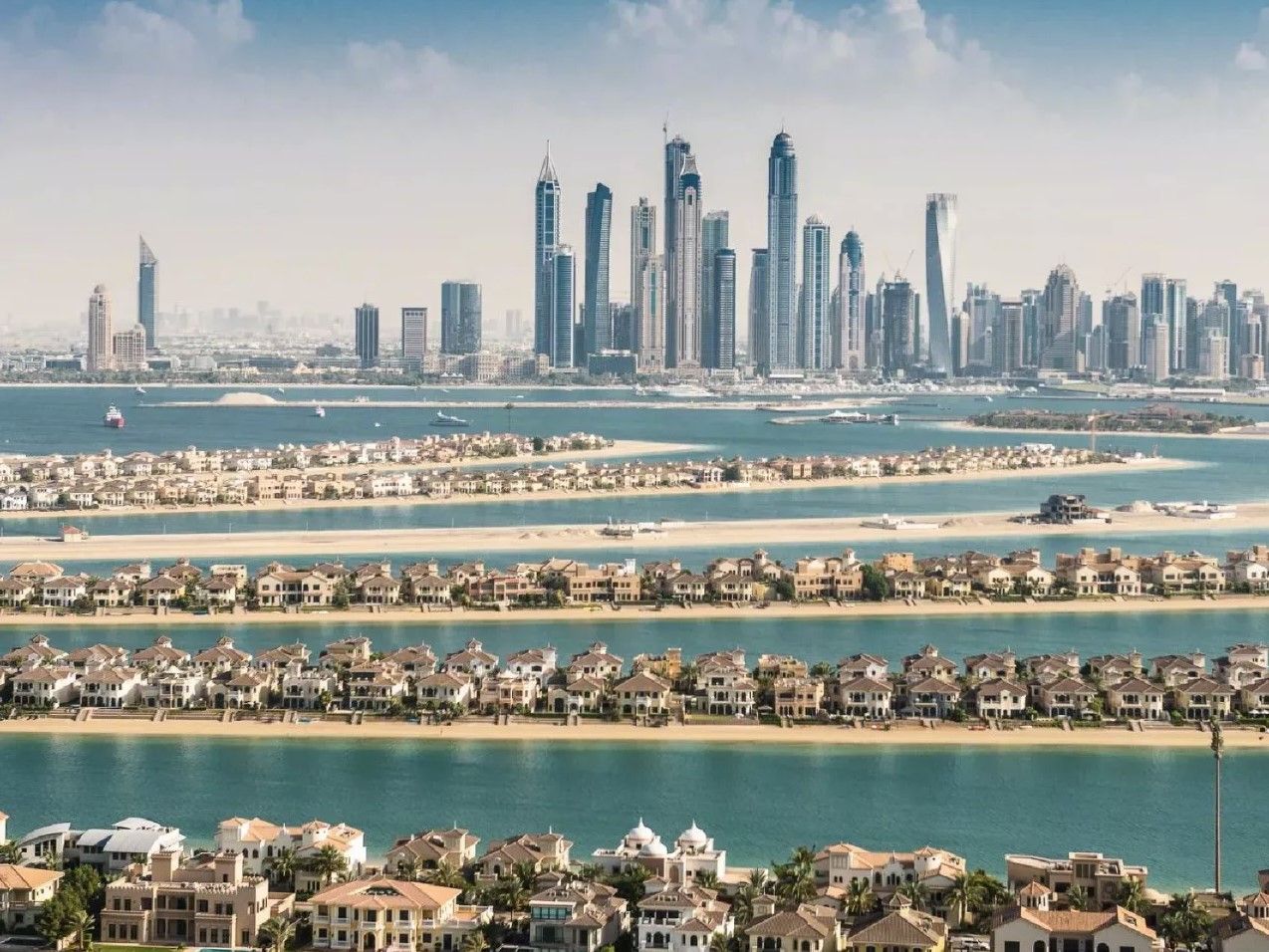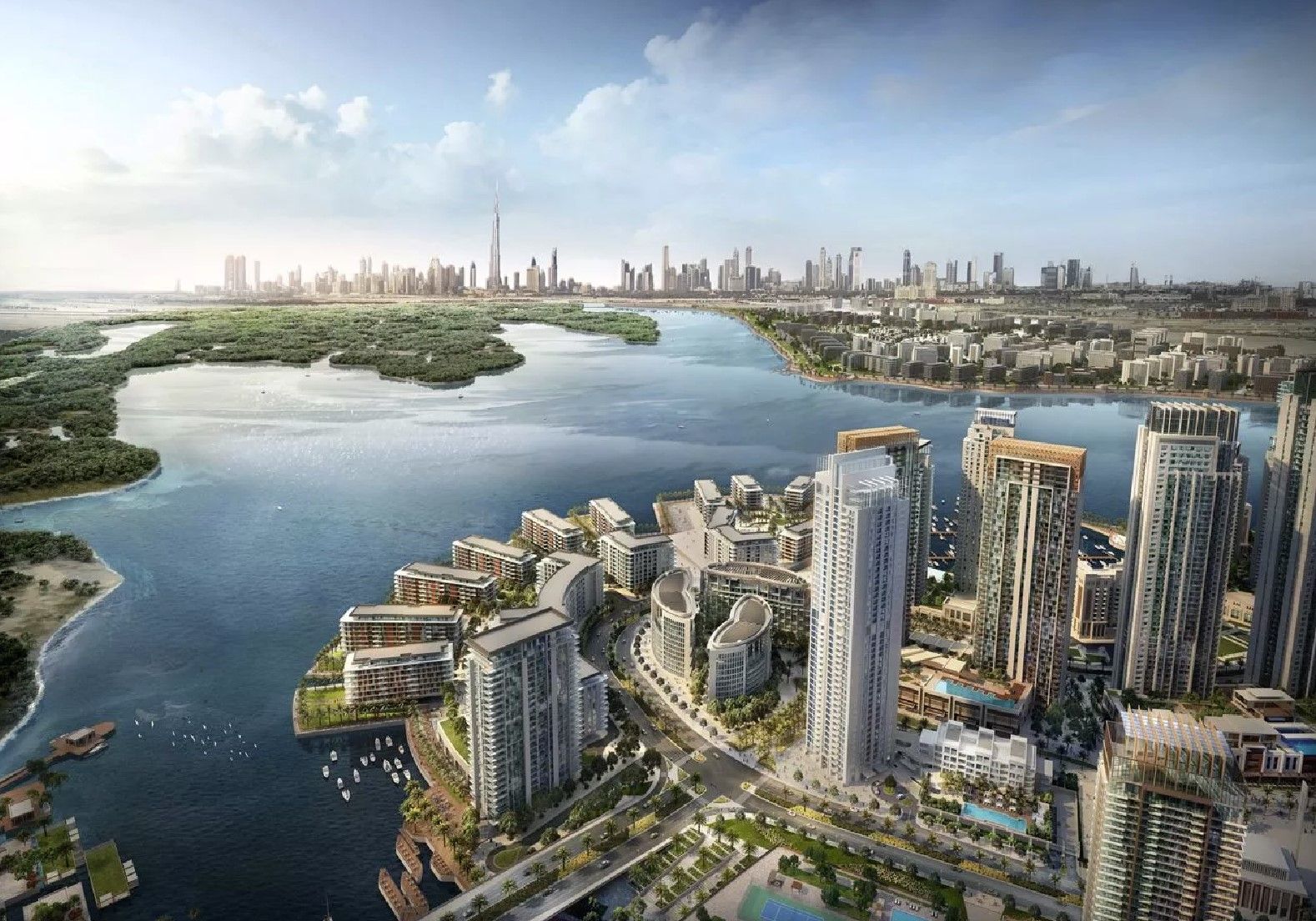What sets short-term and long-term rentals apart?
Short-term rentals in Dubai refer to properties leased for durations of less than one year. These rentals can span daily, weekly, or monthly terms, and the rates typically encompass utilities and internet services.
Commonly, short-term rentals encompass studios and 1-bedroom apartments. Short-term renters in Dubai often include:
- Tourists
- Business travelers visiting Dubai for work assignments
- International students undertaking internships or attending conferences in the emirate
Dubai has seen a surge in the popularity of short-term rentals due to its continual influx of visitors. In the first five months of 2023, over 7 million individuals graced the emirate's shores, marking a notable increase of 1.2 million visitors compared to the previous year, as reported by Dubai Tourism.
These accommodations are frequently located in neighborhoods brimming with tourist attractions, entertainment venues, shops, and dining establishments. Among the most sought-after areas are Palm Jumeirah, Downtown Dubai, and Dubai Marina, although numerous other neighborhoods also offer attractive options.

In Dubai, long-term rentals typically entail a minimum commitment of one year, with the possibility of extending the rental contract to suit one's needs.
The demand for long-term rentals in Dubai is on the rise, driven primarily by the city's continuously expanding population. As of July 2023, the Dubai Statistics Center reported a resident count of 3.6 million, signifying an increase of over 50,000 residents since the beginning of that year.
Among the most frequently selected long-term rental options are 2-bedroom apartments. Those who typically opt for long-term rentals in Dubai encompass:
- Families with children
- Young couples
- Entrepreneurs conducting their business activities within the emirate
Long-term renters often gravitate towards neighborhoods with robust social infrastructure, featuring numerous kindergartens, schools, supermarkets, and hospitals. Desirable areas for long-term rentals include Dubai Creek Harbour, Mohammed Bin Rashid City, and Jumeirah Lake Towers.

Pros and Cons of Short-Term and Long-Term Rentals in Dubai
To determine which rental strategy offers a more favorable financial outlook, it's essential to weigh the advantages and disadvantages of each option.
Short-Term Rentals:
Pros:
- Flexible Payment Options: Short-term rentals allow tenants to choose from daily, weekly, or monthly payment plans, providing versatility.
- High Income Potential: Short-term rentals often yield roughly twice the profit per day compared to their long-term counterparts.
- Adjustable Pricing: Property owners have the flexibility to modify rental rates after each guest's stay, enabling them to respond to market dynamics effectively. If the price falls 11-20% below the market average, a maximum 5% increase is permissible.
Cons:
- Seasonal Demand: Short-term rentals may experience reduced demand during the scorching summer months, particularly from June to August, due to the extreme heat deterring tourists.
- Additional Expenses: Furnishing, equipping with appliances, utilities, and internet connectivity incur extra costs.
- Regulatory Requirement: Property owners must secure permission from the Department of Economy and Tourism, incurring a fee of AED 370 (USD 100) for the right to rent out a 1-bedroom apartment.
Long-Term Rentals:
Pros:
- Steady Income: Long-term rental agreements involve landlords and tenants signing contracts with specified terms and conditions, ensuring a stable income stream. The contract can only be terminated with mutual consent, as stipulated in Rent Act No. 26 of 2007. If a tenant wishes to vacate the property prematurely, a predetermined penalty must be paid to the landlord.
- Reduced Tenant Search: Property owners need not constantly search for new tenants since long-term agreements typically secure occupancy for at least a year.
- Utility Responsibility: Tenants in long-term rentals assume responsibility for utility and internet expenses.
Cons:
- Lower Income Potential: Long-term rentals typically generate nearly half the income compared to short-term rentals.
- Usage Restrictions: Owners cannot use their property at their discretion. Self-occupancy or selling the property can only occur once the rental contract has concluded.
These insights should help you make an informed decision when choosing between short-term and long-term rentals in Dubai.

Potential Earnings Comparison: Short-Term vs. Long-Term Rentals
If you're wondering about the potential income from a 1-bedroom apartment in the Dubai Marina neighborhood, here's a comparison between short-term and long-term rental scenarios.
Short-Term Rental Income:
- The average daily rent for a 1-bedroom apartment is AED 500 (USD 136), which equates to approximately AED 180,000 (USD 49,000) annually.
- Additional expenses include:
- A fee of AED 370 (USD 100) payable to the Department of Economy and Tourism of Dubai for the rental permission.
- A Tourism Dirham tax of AED 10 (USD 2) per day per bedroom.
- Utilities and internet costs, averaging around AED 1,000 (USD 283) per month, according to Numbeo.
- Maintenance fees, typically averaging AED 600 (USD 163) per month.
- It's worth noting that the Tourism Dirham tax is not applicable if the tenant stays for more than 30 days.
- After accounting for these expenses, the net annual profit from short-term rentals stands at approximately AED 160,000 (USD 43,000).
Long-Term Rental Income:
- The average annual profit derived from a 1-bedroom apartment leased for long-term rental is around AED 100,000 (USD 27,000).
- In the case of long-term rentals, landlords are exempt from utility payments. However, they are responsible for:
- An Ejari contract registration fee of AED 180 (USD 49).
- Maintenance fees, which typically amount to approximately AED 600 (USD 163) per month.
- Considering these additional costs, the net annual profit from long-term rentals is estimated at roughly AED 92,000 (USD 25,000).
These figures provide a snapshot of the potential earnings from short-term and long-term rentals in the Dubai Marina area, assisting you in making an informed decision based on your investment goals and preferences.

Choosing Between Short-Term and Long-Term Apartment Rentals: Which Is Right for You?
When deciding between short-term and long-term rental options for your 1-bedroom apartment, it's crucial to consider your priorities.
Short-Term Rentals:
- Short-term rentals can yield a substantial annual income, averaging around AED 160,000 (USD 43,000). However, it's essential to acknowledge the potential challenges, particularly during off-seasons when demand may dip.
Long-Term Rentals:
- Opting for long-term rentals offers stability and peace of mind. Although the income is comparatively lower, averaging approximately AED 92,000 (USD 25,000) annually, it comes with reduced stress and a lower level of risk.
In essence, the choice between short-term and long-term rentals hinges on your financial objectives and your appetite for risk. Short-term rentals promise higher income potential but may entail fluctuations in demand, while long-term rentals provide a more stable, albeit slightly lower, income stream.


